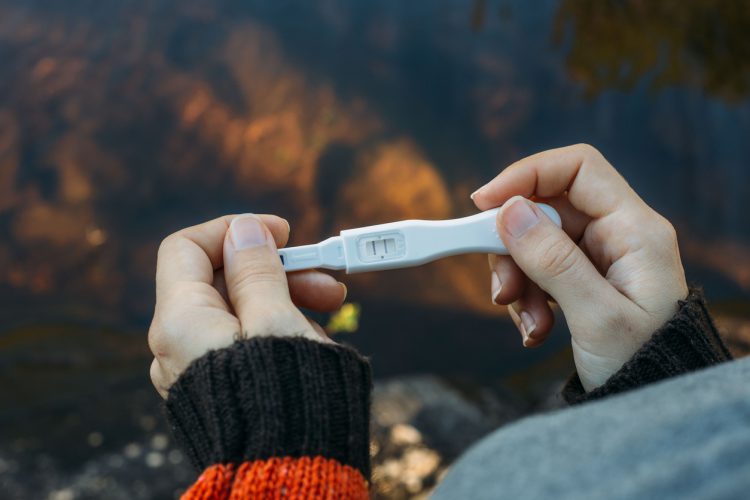Written by: Dr. Jessica Ryniec, a reproductive endocrinology and infertility specialist at CCRM Fertility of Boston
Tips on How to Get Pregnant
If 2022 is the year to grow your family, you’re in good company. For some people, conceiving can be more difficult than just getting close after a romantic dinner by candlelight.
Fortunately, we’ve got you covered for the best tips on getting pregnant this year and setting yourself up for the healthiest pregnancy possible.
Track your ovulation
You need to ovulate in order to get pregnant, but that window of opportunity can vary from person to person, and even from month to month. There are different ways to track ovulation including:
- Basal body temperature (BBT), which involves checking your internal temperature each morning. A rise in temp can mean you’re ovulating.
- Ovulation predictor kits (OPKs) have a high degree of accuracy in predicting when you’re about to ovulate when used correctly. OPKs detect a rise in luteinizing hormone (LH), meaning ovulate can occur within 12 to 36 hours.
- Cervical mucous (CM) is vaginal discharge that can show you where you’re at in your cycle. Track changes by color, consistency, and amount. During ovulation, CM has a slippery, egg-white consistency.
There are many apps out on the market that can help you track and record your cycles right from your phone. Some fertility trackers can input data directly to your phone, making it easier to keep everything in one place.
Take a prenatal vitamin
Your daily vitamin won’t necessarily get you pregnant, but it does set you up for a healthy pregnancy. Folic acid is especially important in the first trimester to help prevent birth defects of the spine and brain. A good prenatal helps provide the essential vitamins and minerals, including calcium and iron to support both you and your baby.
The earlier you can start on a prenatal vitamin the better, because you don’t know when you’ll actually get pregnant. Starting a daily vitamin at least a month before conception can get you on a healthy path in prenatal care.
Keep your body healthy
Getting your body in tip-top shape is not only beneficial for your baby, but it can also help you have a healthy pregnancy and postpartum recovery. When you’re ready to grow your family, here are some things you can do to nurture your body:
- Get enough sleep
- Minimize stress
- If you smoke, get help quitting
- Reduce your caffeine intake
- Move your body every day by taking a walk, practicing yoga, or hitting the gym
Eat a Mediterranean-type diet
The Mediterranean diet is full of whole grains, healthy fats such as salmon and avocados, and plenty of fruits and vegetables. Foods with added sugar or that have been heavily processed or refined should be limited. This includes sodas, most baked goods, chips, hot dogs, and many fast foods.
This type of diet can be helpful in preparing your body for conception, especially if you have underlying medical conditions such as polycystic ovary syndrome (PCOS).
Have your fertility tested
If you’ve been trying to get pregnant for a year without success, or six months if you’re over 35, it might be time to talk with your doctor. If your periods are irregular or absent, we recommend meeting a fertility specialist sooner. Fertility testing might seem daunting, but it’s important to investigate any potential causes as to why you’re not conceiving.
Testing can include:
- Complete health and medical history, including questions about your menstrual cycle and how often you’re having sex
- Ultrasound of your uterus, ovaries, and fallopian tubes
- Bloodwork to check your hormone levels
- Testing for a male partner to look at the quantity and quality of the sperm
Talk with one of our CCRM Fertility specialists to get your questions answered about your fertility status. We offer a One Day Work-Up to get most of your fertility tests completed in one visit. Make an appointment today!


